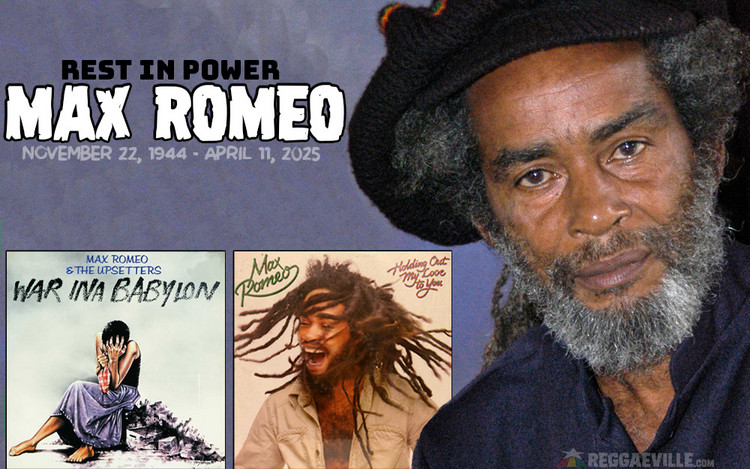Protoje ADD
Protoje - 'The Jamaican Situation' Interview
10/20/2024 by Angus Taylor

When a new Protoje EP, The Jamaican Situation - A Soundtrack (Side A), appeared on Reggaeville’s releases list, dropping October 18th, we and his fans had so many questions.
Was this connected to his Royalty Free Side B EP he released back in 2016?
What is being soundtracked?
Why were three of his recent 2024 singles on it - 30 Million, Mariposa, Where We Come From feat. Jahshii - but not Legend Legend?
Was this the teaser for his first full length album since leaving RCA for Ineffable Records?
And so on.
Fortunately, Protoje quickly clarified this with a social media post on October 10th, saying the EP was a preview to a soundtrack for a short film he and his In.Digg.Nation Collective were making.
To obtain further illumination, Angus Taylor spoke to Protoje via video call at his studio in Irish Town. He was back in Jamaica briefly, getting ready for a live dubbing tour of Europe with Tippy, to showcase Zion I Kings’ rootical remix of his In Search Of Lost Time album.
Themes figure strongly in Protoje's work. And while new themes evolve, a few from past interviews remain. As ever, he's very inspired by the books he's been reading. He’s still focused on a young audience (but wants them to commune with Jamaica’s history). He’s committed to acting on his thoughts, rather than letting them percolate for too long. And as usual he has multiple projects happening all at once, with the likelihood of an overall grander plan.

He talks about the EP, his excitement about moving into film, working with Zion I Kings and the changeover from RCA to Ineffable. He also touches on love of UK dub music, his thoughts on the Marley movie and on wider Jamaican society. Fans will be pleased to know that the Jamaican Situation is the first of several major creative ventures underway - including an official full-length album where he’s back working with Ancient Future producer Winta James.
At the end of the conversation, he lists the films, writers and directors who inspire him. In keeping with his focus on the new, they are mostly from the 21st century. Yet talking to him it's hard to avoid the thinking of a classic movie character… Michael Corleone from the Godfather. Not in any clichéd sense of being a gangster, but a man who is quietly considering many different things at once, and only lets you know what he's thinking when the time is right.
So before we get to the Jamaican Situation, let’s catch up on the album In Search Of Zion with Zion I Kings. How did you link up with them? How did that project happen?
What I wanted to do was a deluxe version of In Search Of Lost Time. Where I would put five remixes on it as a bonus. I started to send out the beats to different producers and see what could come of it. I sent one to Izzy and he did a Still Blooming remix that I put on the deluxe, Toddla T did a Like Royalty remix with me and Pa Salieu and stuff. And then I sent one to Tippy. He sent me back Switch It Up and I was just blown away because it was just so roots and I was like “What the hell?” I sent him Deliverance and he sent me back Jah Deliver Me and again I was like “Yo, these are crazy”.
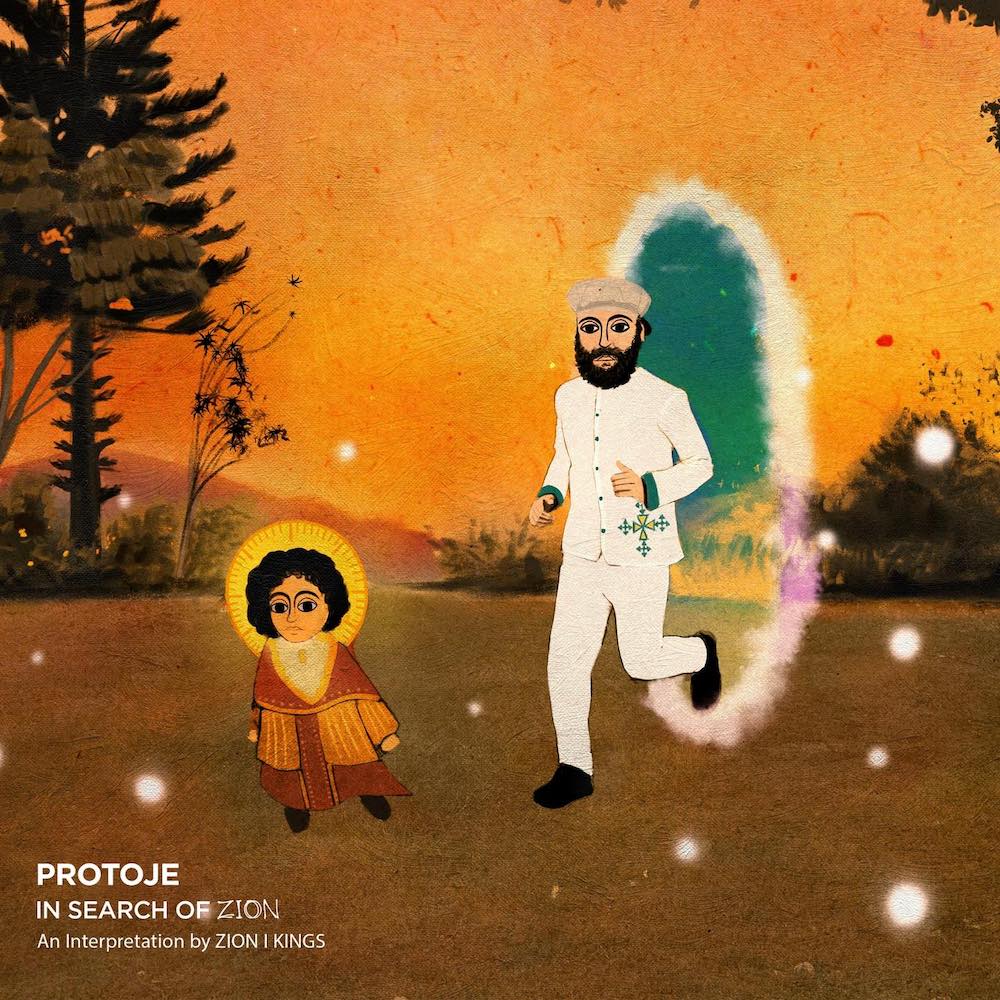
You know, I am always experimenting with sound and trying to move stuff forward but just some good old-fashioned roots when I heard it I was like “Yo, I'm loving this! Let's just do a whole album!” He was like laughing and I was like “I'm dead serious. Let's just do a full album. Do a dub side” because I was just feeling really good about the roots of it. And then we did Incient Stepping too so that kind of triggered it. I'm going to be honest with you Angus, doing In Search Of Zion really has rekindled my love and appreciation for reggae music! (Laughter) Even working on my new album that is not this soundtrack, because I'm working on an album now - I'm just dropping the soundtrack to kind of give myself some time. It's obviously still advancing the sound but really a lot of reggae music principles are there.
How did you first meet Tippy and Zion I Kings?
I just knew about them from all the Midnite work. They worked with Vaughn [Benjamin] so I was always a huge fan. And then Pressure was from down that side as well. I know I met Moon somewhere in an airport and I met Jah D through playing for Jah9. I must have met Tippy, sometime through Pressure I think - maybe at Pressure’s studio in Atlanta. We worked on Not Another Word. It was the first thing we did together - which wasn't a typical Zion I Kings rhythm. They are very versatile and I think that's when our relationship started.
You said to me during discussions of previous albums that your focus was on making music for the youths. With the In Search Of Zion project are you keeping an ear on a broader audience who are fans of your foundation based work?
It wasn't for that, it was just creatively. The creative decision was made because it sounded breathtaking to me. I didn't go in and say “Let me try to make some roots so that people that love the roots can get something”. I was like “This is crazy, I'm having an experience with this right now and I'm loving it right now, so I need people to hear this too”.
And I now have a platform where I have many young fans who like the way I've advanced my sound. But they are already fans now, so they are willing to hear what I have to play. And they hear this and they are like “Oh my God, this is so dope. I've never heard or listened to dub before. I didn't know about those effects and the reverbs and delays”. Even when we did the show up at Dub Club up by Gabre they were just a new generation of fans that know Protoje since A Matter Of Time and Ancient Future and stuff. That have never been to Dub Club. Like little youths that are 19, 20 walking around like “Yo, this is crazy. I have never been here”. They are watching me and Tippy do the dub and will get into it.

So yes, it is to highlight to the people that love the roots from my generation and before me but also to introduce people who love Switch It Up and Like Royalty. They already love that song and then they hear Switch It Up on a roots and they hear the groove and they are like “Yo!” There are so many people that tell me Weed & Ting, this version is their favourite version, out of both of them. So I think it was really smart but I wouldn't even call it smart. It just worked out that way. The balance was, instead of it being new music on roots, it was songs that the youth already loved but presented to them in a roots version.
So tell me a bit more about how you're planning to tour that project?
I'm actually coming to Europe in a couple of weeks to do the In Search Of Zion tour. I have a whole show that I do with Tippy I from Zion I Kings where me and him do a set, where he's doing like Mad Professor stuff. It's smaller venues like Jazz Cafe, we sold it out already. 400-500 venues where we're going to be doing live dub, real old school deejaying style. We're doing six dates across the UK.

When I was just coming out I used to see Mad Professor doing some crazy stuff on the board with artists singing. I was like “I want to do this one day”. And I've always thought about how I could do this and then when the album came about, I was like “This is the perfect way to do it. Let's tour it the way it was created”. Tippy representing Zion I Kings and his whole crew and we just tour it, sound system style - it almost has a Boiler Room feel. So the riser is in the crowd, people are surrounding us, there are people on stage. I don't really go on stage. People are on stage behind us, able to look down. It's like we're in the dub. I want it to feel like a basement in the UK in 1980 and Jah Shaka is thumping out big basslines. That's the feeling I want to have.
We did a tour in America and it went really well. We're doing one in the UK and we're doing one in Europe and hopefully Africa at the start of next year. It's just opened up a new way for me to perform. It's not on a big stage running up and down. It's me behind the sound system with the mic deejaying songs. Every night is something new. Tippy is going to do something in the dub that we didn't do last night. It's no routine, we never rehearsed for it. Dub is unpredictable. The moment you start planning “Okay, we're going to drop out right here” then it loses its spontaneity. Every night I'm like “I don't really know what's going to happen but it's going to be fun”.
Because dub is seen as something from Jamaica's past it's easy to forget how crazy it is when you play it to a new audience. At the risk of getting too academic, it is Jamaica's avant-garde music, the deconstruction and reconstruction of a rhythm. It gets the credit for inventing the remix but it doesn't get the credit for how avant-garde it is.
It's really special. It's so unique. The whole premise of dub is so absurd. Just to even begin with. Reggae music is reggae, but dub is a whole different thing. And dub is what brought me into reggae music. Reggae was cool but we grew up on dancehall and hip-hop and stuff. But it's dub music that got me into reggae. I started deep diving into reggae when I was playing Grand Theft Auto. I was listening to the Blue Ark, some station they had on it off of Black Ark. And they were playing Scientist’s Rids The World Of The Evil Curse Of The Vampires. And I would put it on that station, drive around in that car and I was like “This sounds like the core of hip-hop to me. These drums are different”. That's how I found out about Roots Radics and Channel One. All of that music was opened up to me from dub.

A lot of the UK dub stuff is seen as different by historians, like an offshoot. So it's interesting how it's come back again to Jamaica through you.
No, I love the UK reggae sound. I'm not going to lie to you. I love that energy. Have you listened to Mortimer's album? That song Where Would I Be? It just gives me that UK sound. Like Aswad. And then as I said the whole Shaka thing. Even Black Uhuru to me has a UK sound to it, even though it's from Jamaica.
So how did you end up going from RCA to ending up on Ineffable Records?
First I would clarify, I wouldn't say I'm on Ineffable Records. I'd say we have a partnership with them through Indigg Collective. So we are partners and putting out the music. Obviously I'm out of the RCA situation and being independent like I was before. But I wanted a partner that can help me to release the music and put it out properly. I've known Adam [Gross] for a while. He actually approached my mum when he must have been a teenager about working with us. He must have been about 15 or 16 years old. But we always remembered him because he was just very vibrant and smart. Had crazy ideas about how to put music out from when he was very young. So obviously when he started to work with Ineffable I noticed and I saw the work they were doing.
When I came out of the RCA situation I was thinking “What should I do?” At that very time Diego [Herrera] had left Pandora. Which was devastating because out of all streaming DSPs there's never been someone more dedicated to reggae music than Diego. So I felt like “Wow, one of the real warriors of reggae music is not going to be in the system again”. And then I heard that he was at Ineffable. So that really put my attention over to them because “I know this is a passionate individual within the workings of the music and he's going to the label. Maybe I should have a conversation with them and see what's up”. I had the conversation with them so that we were on the same page and was like “Let's do something, let's try something”. I didn't have an album slated for this year, so I knew I had time to experiment and see what works and get the machine ready for when my album’s on the way.

When you were with RCA I remember you saying a similar thing about the importance of independence and creative control. Were you able to take your music you made from the RCA period to where you are now? Is any of the music you're doing now, stuff you started then?
Yeah, I had complete control over what I'm doing musically. My relationship with RCA was just “Deliver us an album”. It was not like “We need all the songs you're working on”. It was just “Deliver us an album”, “Okay, this is delivered, now deliver us another album” and I do that. So I was always working on stuff for after my RCA deal. And instead of a third full length album we gave them the In Search Of Zion as my last contractual obligation to RCA. So they were very respectful. Peter Edge, the head of RCA, was very respectable, dealt with me very upfront and gave me a lot of freedom to just basically do what I do. The person who signed me to RCA, Archie Davis, left right after we did In Search Of Lost Time. He had to leave. He's now at Def Jam. But with him leaving, that was my person in the building who left. So I was pretty much left to do my own thing. Which had its pros and cons. It's always great to have somebody in there that's fighting for you but also I literally just handed in my finished, mixed, mastered album, cover, everything, handed it in and they were like “Okay, cool”. And I have my masters as well. It's just still under their control until the time period ends.
So let's talk about the EP. You are announced on social media that this is a preview of a soundtrack to a short film. Let's talk about the film first. Is it a documentary? A drama?
It's a drama. It's being shot so that it can be advanced on. You can call it a short film, you can call it a pilot episode. We're still creating, so until we're finished creating it's like we're doing it open. We're doing it where it can be built upon. And it's a drama about Jamaica. About why Jamaica is the way it is. The Jamaican Situation is a paragraph in Walter Rodney's book The Groundings With My Brothers. It's called “A Statement On The Jamaican Situation”. It was inspired by that, so much so that the protagonist in the film is going to be someone who is an academic returning to Jamaica. Walter Rodney was very dynamic. He would teach at UWI in the days and then in the evenings he would be in the garrisons talking to the Rasta, the people, the youths them, in the streets. Giving them wisdom, gaining wisdom from them as well.

So it's based kind of off an academic returning, wondering if Jamaica is where they need to be and just seeing the dynamics of what makes Jamaica the way it is. It's putting Jamaica on display just by what's happening now, what's happened in the past, the history we have behind us. I'm putting it together in an entertaining, educating way that I think ties in with music. Maybe too far but the music has a role to play in it - where lines from some of my songs are dialogue from the film. Just trying to have creative ways to do music. And my love for film is my only thing that is right up there with music. Someone said one time that if you love something enough, you're always going to try it. I have such a love for film that I want to try it too.
So which came first: the film or the songs?
The songs came first. I started to write scenes in my mind. I was writing a song and I said “I can build on this idea”. Then I'm like “You know what? Sometimes in a song I can't build on the idea as much as I would like”. So when I say “Farming used to power communities” in 30 Million. I grew up in St Elizabeth. Farming was the backbone of St Elizabeth in the 80s. Alpart [Alumina Partners of Jamaica, bauxite refinery in Nain, JA] came with the bauxite and many people stopped farming and went to work at the plants. And then the plants shut down and then the farming got hurt. I would like to talk about these things and see how these developments have hurt Jamaica economically and socially. But sometimes I just need to go back into the chorus and the song is three minutes! So maybe a way to expand on my thoughts is to go further into film and that's how it kind of came about.

Who's directing the film? Who's writing?
Directing? Right now it's my video team - myself, Samo and Fernando, who have developed a good working relationship with visuals now. Samo is just crazy with what he sees and Fernando, with a different background, he's able to see stuff in Jamaica from an outside perspective. So things like the stoplights not being symmetrical. I don't notice that. I grew up in Jamaica and that's just the way it is. So it's good to mix that. Rob Maylor who [wrote and] produced Sprinter [2018 film IMDB.com]and does a lot of the local stuff, he's helping us produce the film. I am doing some writing for the concept and then there's a young writer called Rebecca [Becx] Williams. She wrote a short film called Out Of Many [2020] and she's also doing some crazy things writing. So the team has been together, putting stuff, getting ready to kick it off, you know?
As the film is in progress I know you're not going to be able to answer all my questions but as it's a drama – who’s acting in the film?
We're still casting. I have some good ideas already. There will be a couple of cameos from people, familiar faces, some doing different roles and some playing themselves. They'll be like a couple of main characters. I don't want to give too much away but there will be a couple of things that it revolves around. But all that stuff is still coming together.
Sometimes when I do stuff, I put the carriage before the horse. So I like to commit to things and make sure that they are going to happen. And sometimes I sit on music for so long that I'm like “You know what? This music is done. If it doesn't come out now, it's going to take two years. Let me put out some part of the music and introduce some people to the concept and gradually get the word out that we're doing a film”. Someone is going to hit me up today or tomorrow and be like “Wow, I heard you're doing a film, I would really like to be a part of this”. It's like almost advertising the film right now. Because the concepts are dope and I'm super excited to kick off the production of it.
I guess I asked that question to see if you said “Me! I'm going to be the star of the film!”
No, no no. I'm not against. You know the first thing Rob was saying was “You've got to make a cameo”. I'll find something very small and unassuming but my focus in film right now is writing and directing. I have so much respect for actors and acting. The thing I love the most outside of being an artist is actors and what they do as creatives. And directors and writers. I just want to be respectful of the craft and go in as a learner. Start to learn things and then take it from there.
Books have been a big inspiration for your creativity. We've talked about Marcel Proust inspiring In Search Of Lost Time. And the first time I heard about Dr Rodney was when I was interviewing Horsemouth. Because he was involved in the protests. And of course when he was in a film Rockers, he was the star.
Yeah, Horsemouth killed it still, that movie's so funny, man. But this is like, I want to tell a story. There are many stories to tell that I think “Maybe I'll do it, I'll go on camera” but I don't even love shooting music videos! How am I going to love sitting on set to shoot a movie? I got requested to come and read for roles for the One Love movie. And I was like “I can't sit on set and be told to do something 12 times. That's not the way I create”. I used to love stage more than studio because on stage I just do the show and it's done. In studio they'd be like “Yo sing it this way, sing it that way” and until I grew to appreciate being in studio and trying to get stuff as good as possible.
How did you come up with the idea for the cover of the EP?
The cover for the EP just happened. Rochena who does my social media and all of my reels and editing for me was on set, she does all my BTS [behind the scenes] for stuff. She has a film camera and she was just taking shots and doing her thing. There is a scene in 30 Million where the girl is playing with her dollhouse, showing her living in a dream world but you pan out, go wider outside and you see what's happening. When I saw the shot, it just spoke to me on some level. I was lost in her eyes, seeing hope and seeing this array of emotions that were coming out. I was like “Yo this is the cover”. I didn't even overthink it outside of “I want this to be the cover. This represents the future. This represents ‘what are we doing?’” It's all for the children. Everything is for the children. I heard James Baldwin say something one time like “All the children are ours”. When I saw that, it set the tone for me of how I'd want somebody to feel when they're going to listen to the project.

Because this is called the A side, I have to ask if this is in any way linked to Royalty Free B side? Or is this just a completely different concept that's linked up by coincidence?
(laughs) It's just that the people are at my neck about Royalty Free since I posted side A. They're like “Yo, you come back with A side foolishness again when we nah get Royalty Free yet? Yo, you nah trick me again”. And some people are saying “Well, we know there’ll never be a side B then because…” It's funny. It's not related in any way. I already have stuff for the side B for Jamaican Situation. But Royalty Free 2 is also a full length. I finished it. It's like a full-length project. It's mixed right now. I've been working on it. I was going to put this out this year but I wanted to make an album. Because my focus is to make an album, something I've been working on for a year or two. And it's coming together so good that I didn't want to release Royalty Free. I wanted to just focus, compromise and release Side A for the movie. And then go back to working on the album. But Royalty Free is going to be dope. It's a nice vibes.
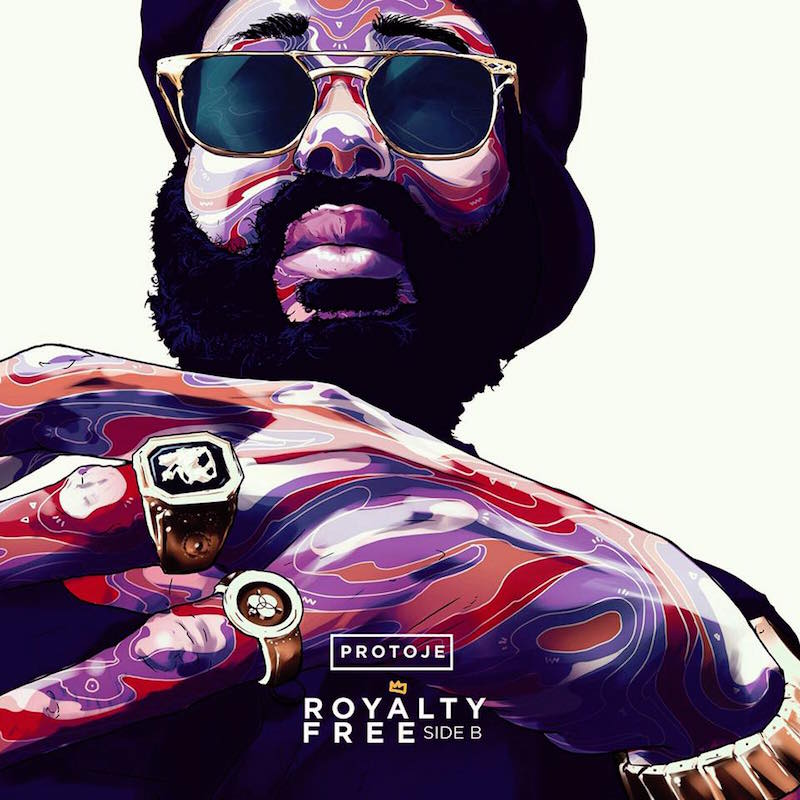
So just to be clear, you've got the full Royalty Free project, this Jamaican Situation is going to be a full-length project eventually as well, and then you've got another official album that you're working on?
Yeah, my album is for next year. I'm super excited about it, being back in studio with Winta working on music. Because we haven't worked on an album since 2018. Obviously, he worked on In Search Of Lost Time with Like Royalty and then lots of my productions now, that he takes over and finishes up. And it's about to be a big movement next year for my album. So working on lots of music, Angus, non-stop and you know what the main thing is? I have so much music now and now I know the exact amount of time I want to spend. So I know that I need to be putting out my music right now. That's why I said “Instead of not dropping something, let's drop this”. I have so many side projects that I just want to release music. I'm just getting started.
So was your single Legend Legend not on the EP because it's got nothing to do with the film?
Yeah, because it has nothing to do with the film. It was just a one-off song that I wanted to put out in honour of Bob Marley and I did it. And as I said, usually I'd be like “Oh well” but I wanted to do it, so I released it. But I never intended it to be on the project.
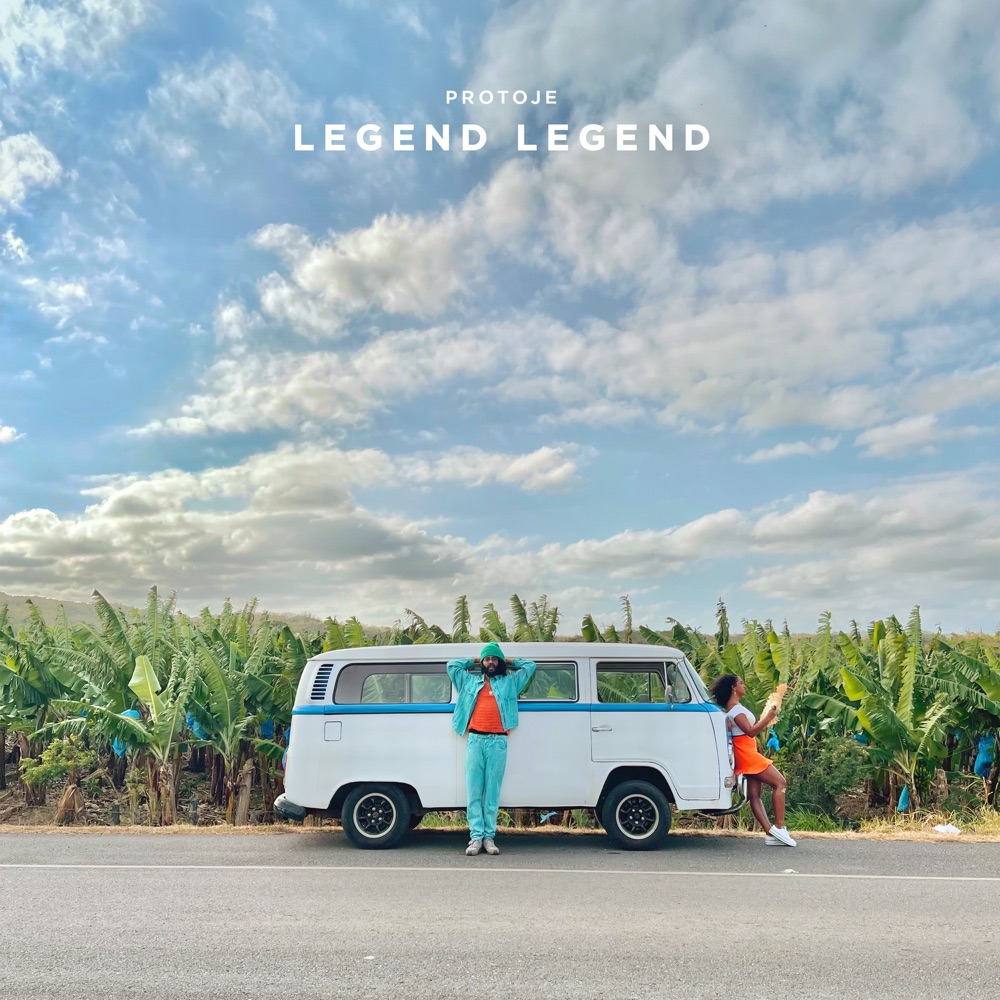
It's kind of old news but as you mentioned about reading for the Bob Marley film and you put out Legend Legend, what did you think of the Bob Marley film? It was all anyone could talk about last time I was in Jamaica back in February.
It was great to see reggae music and Jamaica on the big screen. They did a good job of depicting a certain part of Bob Marley's life that I guess was very challenging for him. And to give people context. Obviously it's Hollywood. They're trying to make a big film to put the brand out there and I think they did a good job of that. The sound in the film was crazy. The music sounded crazy. That was also a job well done. There's nothing negative I have to say about it. I think it's good to see my colleagues on screen. It was just a good vibe and hopefully it gets more interest and gives a boost to the film industry in Jamaica.
It brings it back to what we were talking about before, about whether you're making music for young people or older purists. When I was in Jamaica I noticed younger people really liked the film. They didn't care about “Was this scene accurate? Did Coxsone Dodd really do that?” It was “This is a Jamaican person on the big screen who did something incredible”.
I agree. When you're making a film a lot of people are going to be like “It's not this and it's not that”. But bro, it's not about us. And even though I didn't grow up when he was alive, you grow up knowing the stories and this is a different thing. This is 2024. This is for an audience that they're trying to teach about the greatness of this artist, the spirituality in his music and his faith. I think it does the job. Sometimes we have to realise that we may not be a target audience for something. I know so much more about Bob Marley's life than the average person because of what I've read and the stories I've heard. For the most part bro, people just know artists “Oh, he sang these songs”. It's like when you read a book and you watch the film and you're like “It’s not like in the book, you know?” Well yeah of course!
Let's talk about the songs on the EP. We mentioned Vaughn Benjamin earlier and in a song like 30 Million, produced by Iotosh, you're folding so much into the song, you're not just telling a story in a simple narrative way. So what is the song about for you?
Again that's a good example of the movie. It's an observation of Jamaica as it stands right now and also reflecting on how things might have been as well. And that represents the film perfectly. That's why it's track one. Look at it like this Angus, the song starts off with street level scamming and the song finishes off on financial fraud and investment fraud. And then everything that's in between that as well.
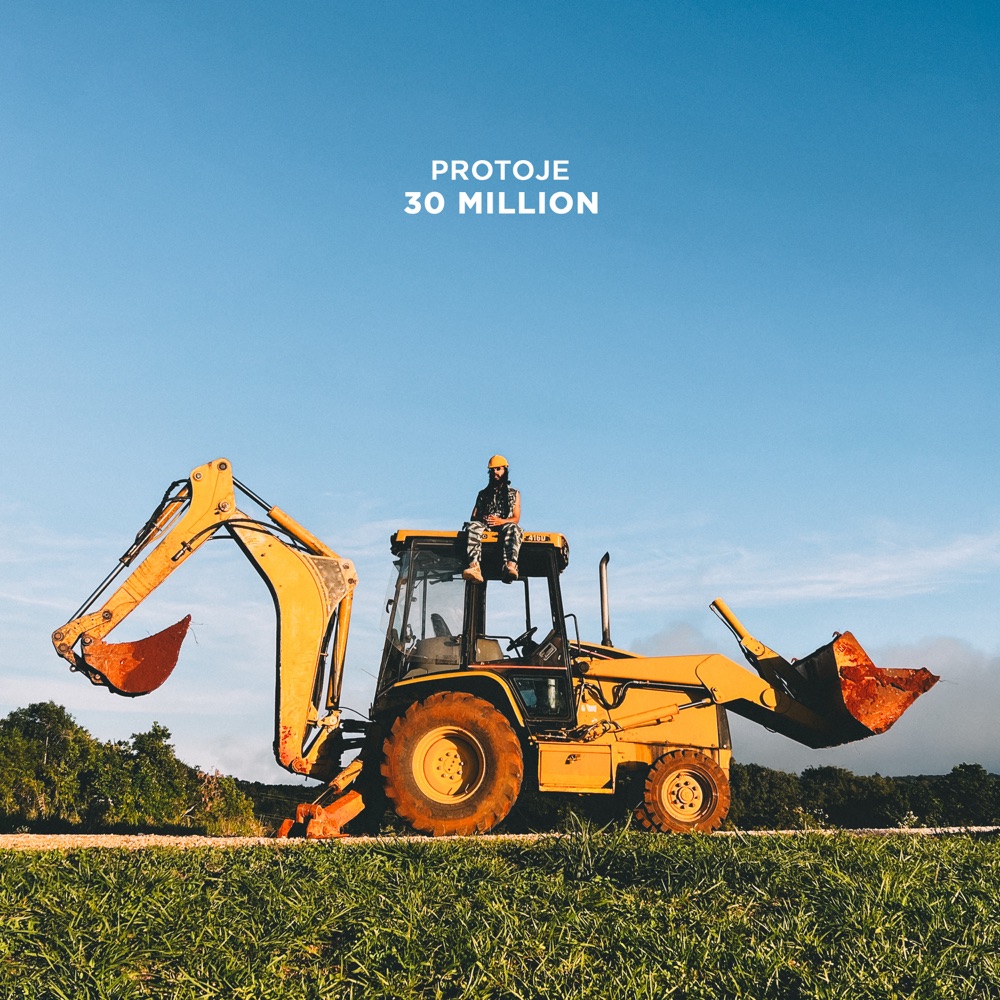
It shows the range of activity in Jamaica. It talks about the housing market, just practical stuff that every Jamaican deals with. And this is the thing. In Jamaica yes, there's the garrison, there's the ghetto, there's uptown, there's country, but everybody deals with some level of crime, financial insecurity, health care issues. Everyone has someone in the family that deals with that. I wanted it to paint a picture of the entire Jamaican situation. It's not just a situation in the ghetto, it's not just the situation uptown, it's not just the situation in country. It's everything that exists to make Jamaica the way it is. And I think 30 Million perfectly represents all of this.
Jamaica is in a challenging spot. People are having a hard time. It's global. Right now as Chronixx would have said “The whole world is one big ghetto”. But yeah, Jamaica is challenging, the economy is challenging, people are working hard and not getting enough pay. Jamaica has a unique history. Jamaica was thriving or at least appeared to be thriving. There's many, many things that happened in Jamaica with the IMF, there's a lot of stuff that happened in the late 70s, with Manley and Castro and the fear of communism. There are so many things that happened to derail Jamaica. From the promise that it was.
I mean if you look at Jamaica, English-speaking, proximity to America, island with good weather all year round. These are prime conditions for something to thrive. And a global brand. I mean pound for pound there cannot be another country the size and population of Jamaica that has as much impact in the world. If someone can tell me, I'll have the conversation but I can't think of a place that small that has so much influence. So yeah, it's just a challenging place and the movie and the soundtrack is bringing up some of these topics and starting conversations again.
The second single Mariposa, produced by Zion I Kings, is more of a romantic song. How does that fit into the film?
Well, in the film there's interaction with a woman, someone who's facing the challenges, someone who cares, almost holding up a mirror to be like “Yo”. I wanted a sound to reflect that. I wanted that laid back night in Jamaica. Kingston at 2 or 3 o'clock in the morning gives me so much relaxation. To see the city at peace, empty and you're like driving around Kingston, just in the breeze, feeling the energy. And at the same time in the song you hear “Windows down, no, Never, mi no roll so, Because the city weh we grow, yeah, It keep yuh pon yuh toes too”. Like here, even when you're relaxing at 3 in the morning trying to take a drive with somebody, you've got to watch left and right. That line specifically is what plays into the film.
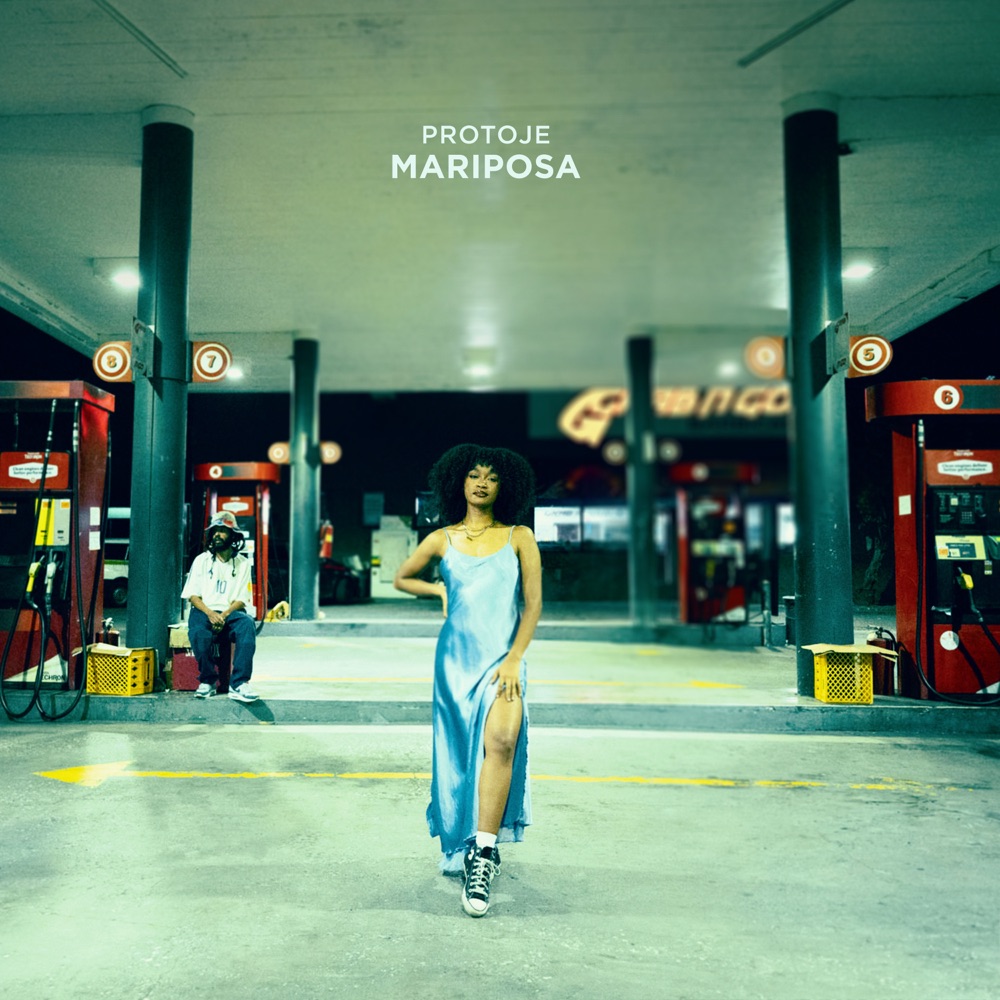
You said before that Zion I Kings are very versatile and this is an example of their versatility. It's really not what you would expect from Zion I Kings at all.
Yeah 100%. A completely different sound. When they sent it to me and the beat was called Mariposa and I just said “Alright, cool" and then I just wrote Mariposa. When I heard it I was like “What?” Because they sent a pack of like six beats. I think Incient was in that and that was called Incient Steppers. Whatever they send me, whatever name that it has, I'm just going to write that. I heard Mariposa and I thought “This is so different” but I liked it. It was very ethereal. It’s a dreamy song and I love the vibe on it and it fits into the soundtrack great.
The third single, Where We Come From, produced by Izzy, is a collaboration with Jahshii. What made you decide to do this collaboration?
Izzy sent me the skeleton for that song and immediately I was like “This is bad. Jahshii needs to sing the chorus. Definitely him needs to sing”. He just has that sound that I was looking for, for the track. Again for the film, it needed some element of the street. And I thought he was a good representation to lend that voice to that song. So I don't overthink it. I just had the idea, “Definitely Jahshii” and he was very into doing it and he came to studio to record and wrote his part, and it was dope.
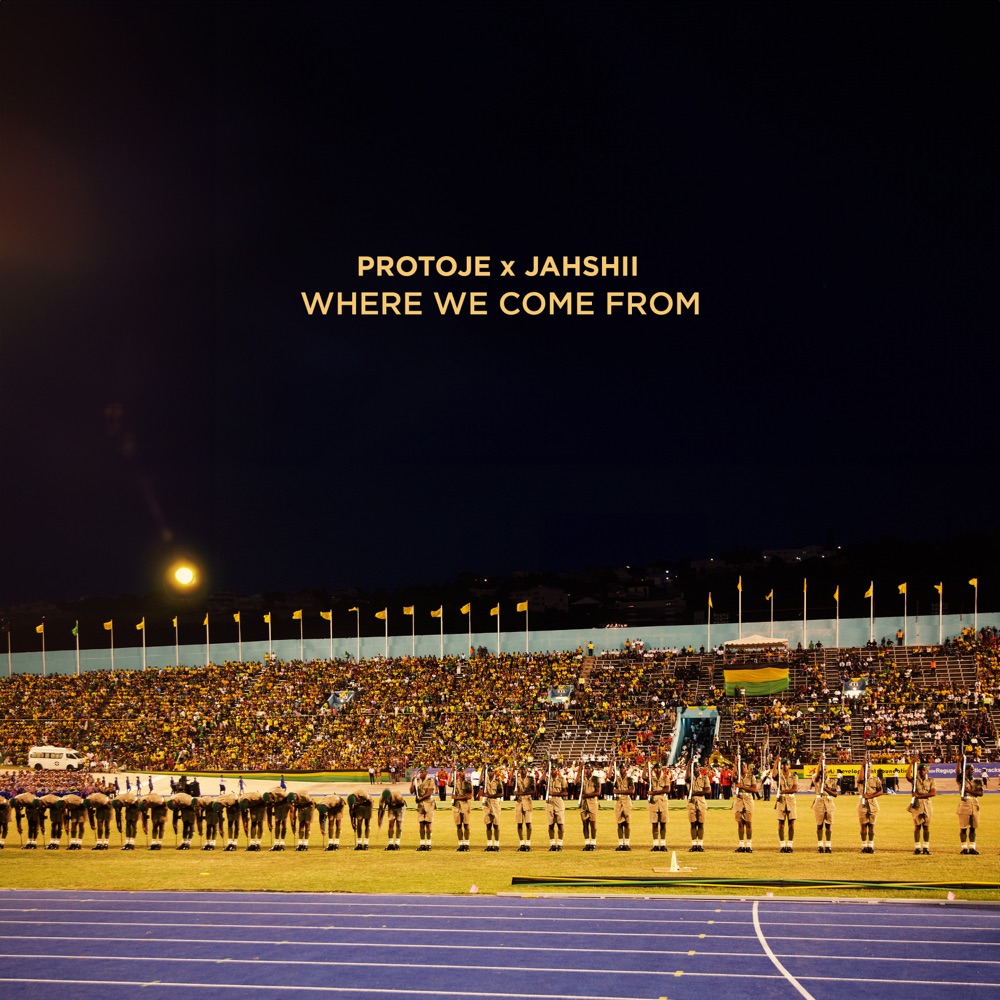
Do you know him well or was it a reach out on social media?
We knew each other decent enough. We see each other out and it's always love and respect. And then obviously working together on the song and shooting a video and hanging out more, it just makes you know someone more and have a better relationship with them.

He's been through some tough stuff in his life, so he's representative of the Jamaican situation for sure.
Yeah man, for sure, man. And I think I'll definitely reach out to him to do something in the film as well. Because I think he has a good energy about him and is very captivating.
So let's talk about the two new tracks 80's Wild and Barrel Bun. Who produced those?
80's Wild was produced by a guy called Will Tee. He did a lot of the Micah Shemaiah stuff from back in the day. I reached out to him like “Yo, I got your link, I've always liked your sound”. I don't even know if he really produces anymore. He just lives somewhere In America, living his life. He was like “Seriously?” I reached out to him after and was like “Yo, it's on one of my projects” and he was like “Really?” And I was like “We're gonna send an advance for the song”. And he was like “Okay, like that's cool”. So he did that song and then Ziah [Roberts] did Barrel Bun.
80’s Wild is another topic that I've discussed in interviews with many artists. Where does it sit in the film for you?
This sits to tell the history. This comes from a monologue in there telling the history of some things that happened. Part of the film is that there is a character, like a supporting actor, that tells a lot of stories. Very knowledgeable about stuff. This part of the song comes from them talking about certain things that happened in the late 70s and 1980s that changed the way Jamaica has operated ever since. Influx of firearms coming into Jamaica. High powered rifles. Donmanship. Political Warfare.

All of these things skyrocketed in a time when reggae music was… I mean come on, it's the 70s in Jamaica? The peak of everything happening. When you watch One Love movie you realise that Bob Marley, Claudie Massop, Bucky Marshall, who are all represented in that film, died in the space of a year and a half. In such an influential time in our history. It just makes you think. When you look on that stage in 80’s Wild, Bob Marley, Bucky who came out, Claudie who came out, Jacob who came out, all those people didn't have three years left after that monumental time. And so it's something in the film just talking about things that I find interesting, that I think people would talk about. To add insight to honour our history.
In that period the badness and the music were very connected. Roger Lewis from Inner Circle told me how in 1971 when Eric Donaldson won the festival song with Cherry Oh Baby, the person that took him to the studio was not Bunny Lee but Claudie Massop. Seaga was very connected to the music. Yet some artists have told me that the 1980 election was responsible for the changes in the music.
Yeah, man. I agree. It was a very pivotal time in our history. And that's what that song is really about. That's why it's named 80’s Wild. The Wild Wild West!
It's got an 80s feel to the rhythm as well.
It does embody the whole thing. What I'm trying to do with this project is very specific, Angus. It's not necessarily what I would sing about right now. That's not what this project is about. It's about forming a framework for this soundtrack and this film and making sure it's just seamless in the way it's presented.
How does Barrel Bun fit into the soundtrack?
Looking at Jamaica from another angle that's different from 30 Million and Where We Come From. It goes into the everyday psyche behind what people do. That even if you're trying to find your way out, the challenges and the mountain is high to climb in Jamaica. The thing about this song that I particularly like is that the melodies and the beat almost seem positive and playful. The way I'm singing is like it's almost like it's supposed to be friendly and playful. The mood is happy and light but the words are like…
Kind of bleak.
Yeah, it's kind of bleak you know, but I was just experimenting with it like “Yo, this just feels so opposite?" I think there's something in this where it's just so friendly and vibrant but it's so dark. You can still sing it but when you sing it you probably feel like ‘Wow’. So that's like me trying something different. Something more dark but sounds like it's not dark.
I just wanted to finish by asking about film. Who inspires you in film? What's your greatest film of all time? Who are your favourite directors? Whose level are you trying to reach?
I'm inspired a lot by different people. I really like Christopher Nolan's films. I really like David Fincher's films. Tarantino because of the dialogue. He'll just make a film with so much talking. And I'm still entertained by the dialogue. Christopher Nolan because of how he sees the world and his obsession with time as well. His brain, in the way he thinks, is just so crazy to me.
As a writer I really like Taylor Sheridan. Who wrote Sicario and wrote the Yellowstone series. I really like how he represents where he's from. He wrote Hell Or High Water too. The writing from that is inspiring to me. My favourite movie, one of my favourite movies is probably No Country For Old Men. I really like Shawshank Redemption. I just love film. I could go on and on about film and directors but David Fincher, Nolan and Tarantino are probably some of my favourites. I like to go back and watch the older stuff too where it was more about dialogue. Because that's the important part for me with a writer's background. I want to be able to just write really good dialogue where you can just sit and watch two people talk for a minute and you feel entertained and captivated. That's something that inspires me.






